6 Reasons Why Accountability Is Vital For Business

Accountability stands as a fundamental pillar upholding the framework of thriving enterprises. It serves as the invisible force that aligns individual efforts with organizational goals, ensuring that each team member recognizes their role in the company's success. By creating a culture where people take ownership of their actions and decisions, businesses create an environment of trust, transparency, and continuous improvement.
This principle goes beyond mere responsibility; it's about creating a shared commitment to excellence. When accountability is woven into the fabric of a company, it drives performance, enhances problem-solving, and promotes innovation. The following 6 key reasons demonstrate why accountability is not just beneficial, but vital for any business aiming to achieve lasting success and growth.
Reason 1) Enhances Performance and Productivity

Accountability is directly linked to improved performance and productivity in the workplace. When employees know they are responsible for their tasks and outcomes, they are more likely to take their roles seriously and perform to the best of their abilities.
- Clear Expectations: When roles and responsibilities are clearly defined, employees understand what is expected of them, reducing ambiguity and confusion.
- Increased Motivation: Knowing that their efforts will be recognized and evaluated can motivate employees to work harder and more efficiently.
- Performance Monitoring: Regular feedback and performance reviews help employees stay on track and improve continuously.

By creating an environment where accountability is prioritized, businesses can ensure that every team member is working towards the company's goals and objectives.
Reason 2) Builds Trust and Transparency

Trust and transparency are fundamental elements of a healthy workplace culture. Accountability helps build these elements by creating an open environment where communication is clear and honest.
- Openness: When employees and management are open about their successes and failures, it builds trust within the team.
- Honest Feedback: Constructive criticism is more easily accepted in an environment where accountability is valued, leading to personal and professional growth.
- Reliability: Employees who are accountable are seen as reliable, creating a sense of trust among team members and between employees and management.
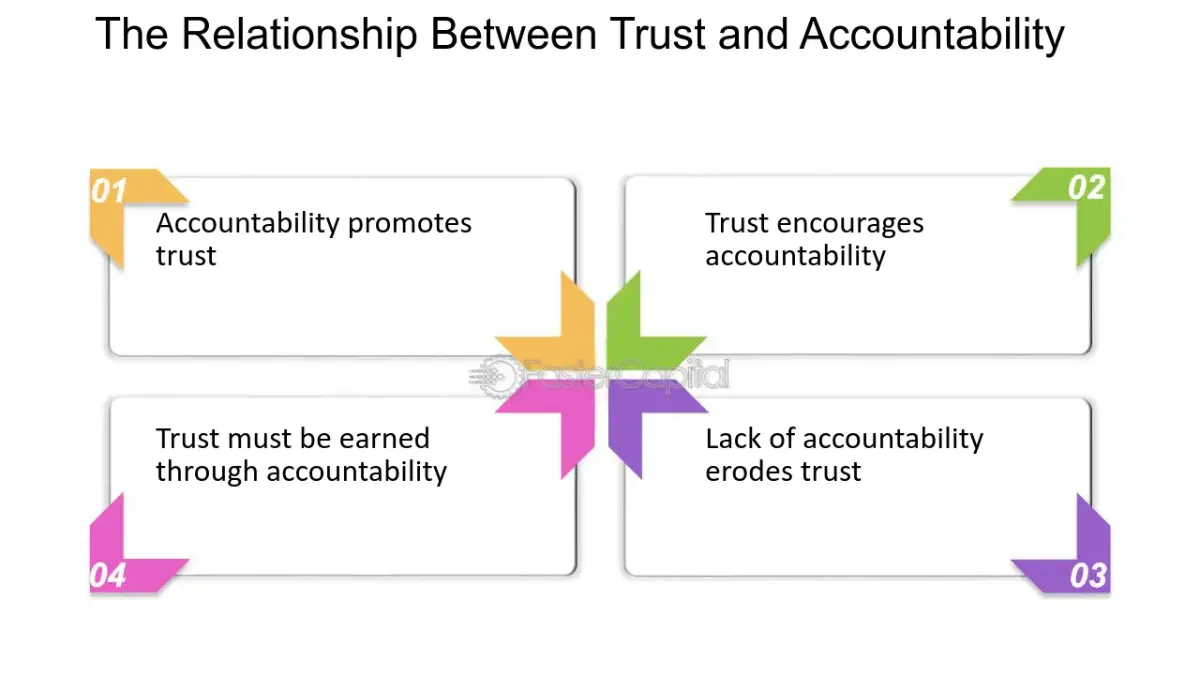
This trust and transparency can significantly improve team dynamics and collaboration, leading to better outcomes for the business.
Reason 3) Improves Employee Engagement and Satisfaction

Engaged employees are more productive, creative, and committed to their work. Accountability plays a crucial role in enhancing employee engagement and satisfaction.
- Sense of Ownership: When employees are accountable, they feel a sense of ownership over their work, leading to higher job satisfaction.
- Recognition and Rewards: Accountability systems often include recognition for good performance, which can boost morale and motivation.
- Career Development: Being held accountable helps employees identify areas for improvement, contributing to their professional development and growth.
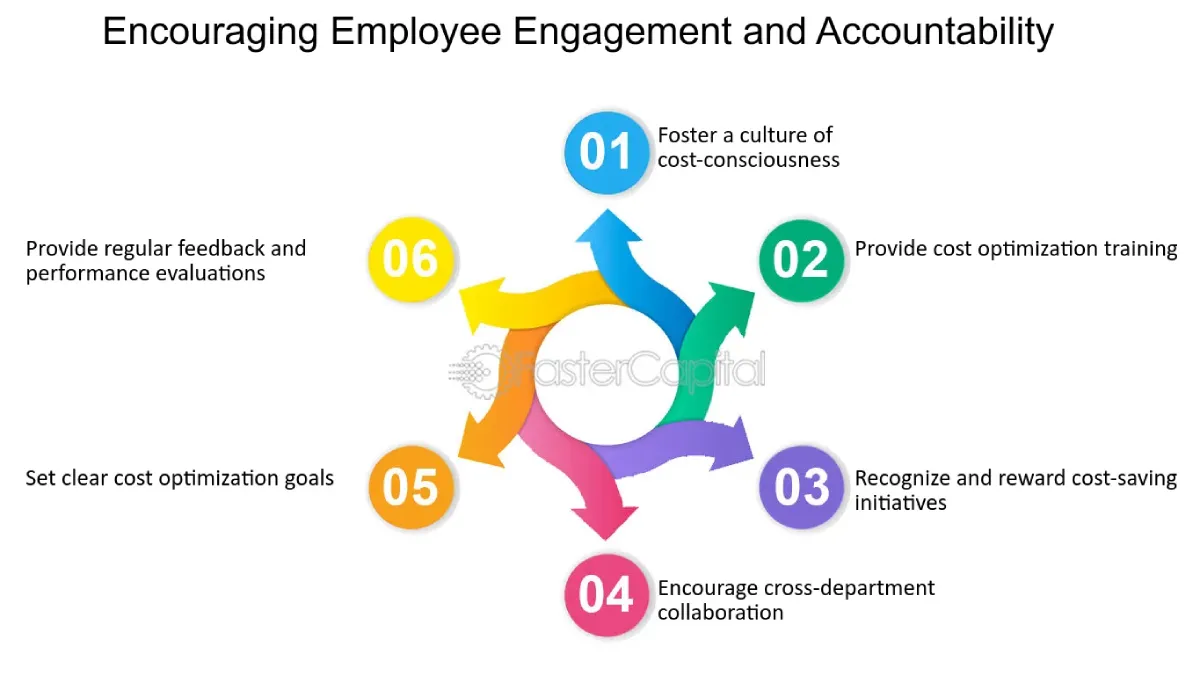
By creating a culture of accountability, businesses can ensure that employees are not only engaged, but also find their work meaningful and fulfilling.
Reason 4) Promotes Ethical Behavior and Reduces Risk

Accountability encourages ethical behavior and helps in minimizing risks associated with unethical practices. It creates a culture where ethical standards are upheld, and deviations are addressed promptly.
- Ethical Standards: Clear accountability structures ensure that everyone understands and adheres to the company's ethical guidelines.
- Risk Management: By holding individuals accountable, businesses can quickly identify and mitigate risks related to unethical behavior or poor performance.
- Legal Compliance: Accountability helps ensure that the business complies with legal and regulatory requirements, avoiding potential legal issues and penalties.
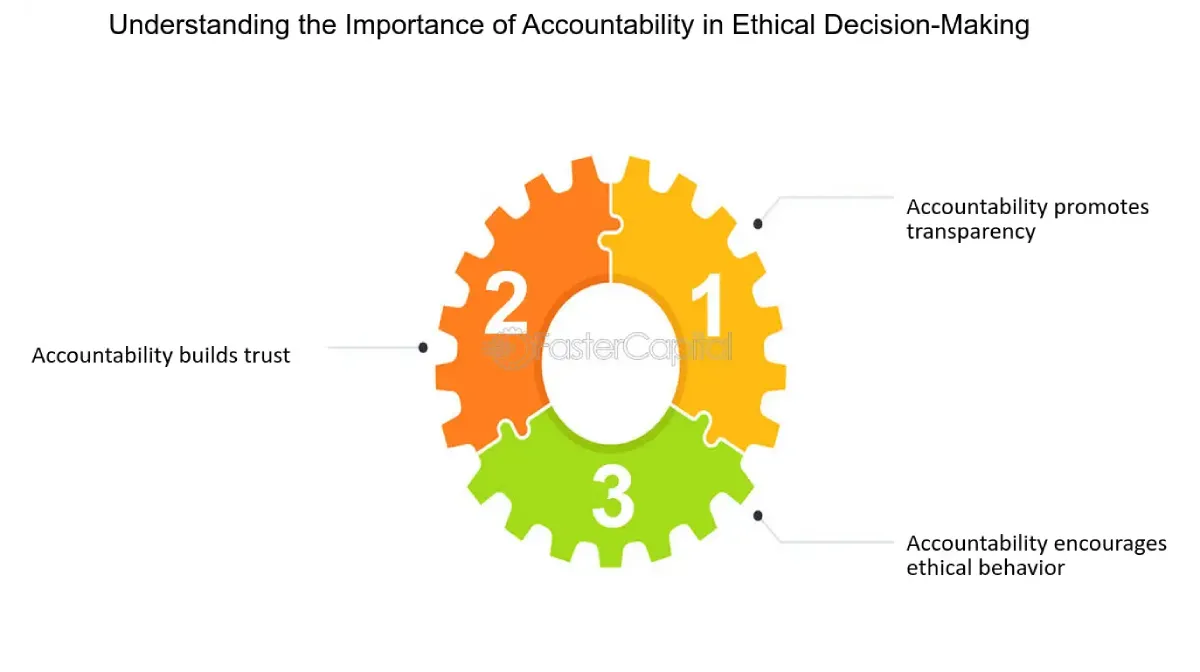
Promoting accountability in the workplace ensures that all business practices align with ethical and legal standards, safeguarding the company's reputation and financial health.
Reason 5) Encourages Innovation and Problem-Solving

Accountability creates an environment where innovation and problem-solving are encouraged and rewarded. When employees know they are accountable for their contributions, they are more likely to take initiative and think creatively.
- Encourages Initiative: Accountability empowers employees to take the initiative, explore new ideas, and contribute to innovative solutions.
- Collaborative Problem-Solving: A culture of accountability promotes collaboration, where team members work together to solve problems and overcome challenges.
- Continuous Improvement: By being accountable, employees are more likely to seek out ways to improve processes and systems, driving innovation within the company.
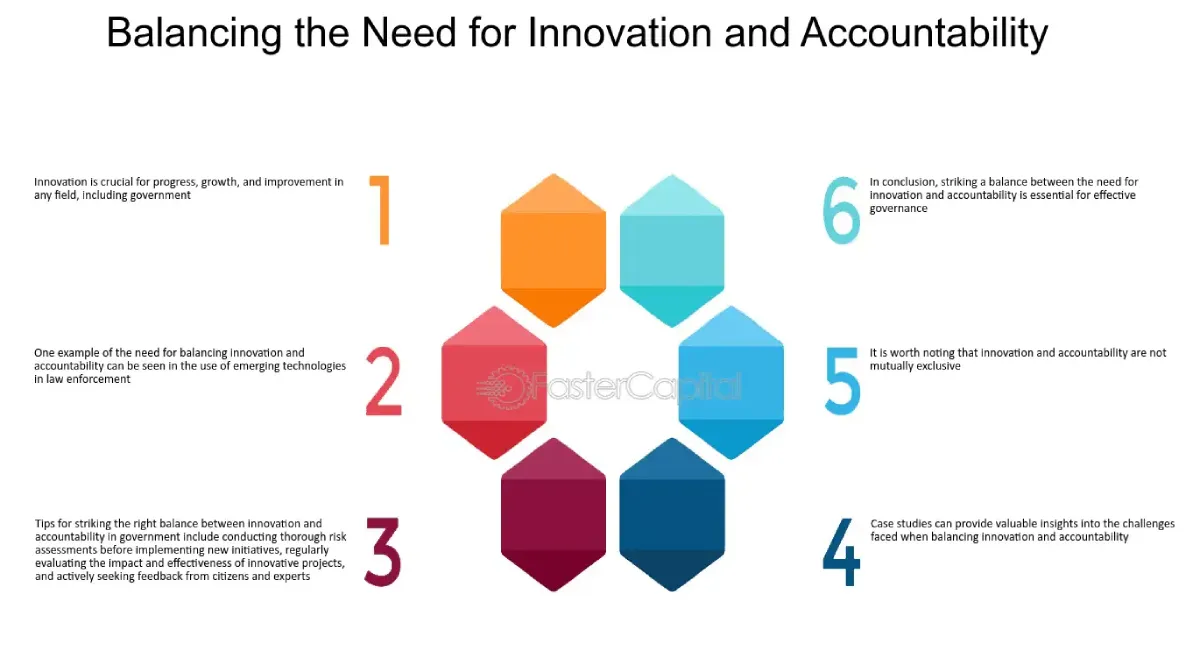
Businesses that prioritize accountability often find that their employees are more proactive and innovative, leading to better products, services, and overall performance.
Reason 6) Strengthens Leadership and Management

Effective leadership is essential for business success, and accountability is a key component of strong leadership. Leaders who are accountable set a positive example for their teams and create a culture of responsibility throughout the organization.
- Role Models: Accountable leaders serve as role models, demonstrating the importance of responsibility and ethical behavior.
- Decision-Making: Leaders who hold themselves accountable are more likely to make informed and effective decisions, benefiting the entire organization.
- Team Dynamics: Accountability in leadership helps build strong, cohesive teams that work well together towards common goals.
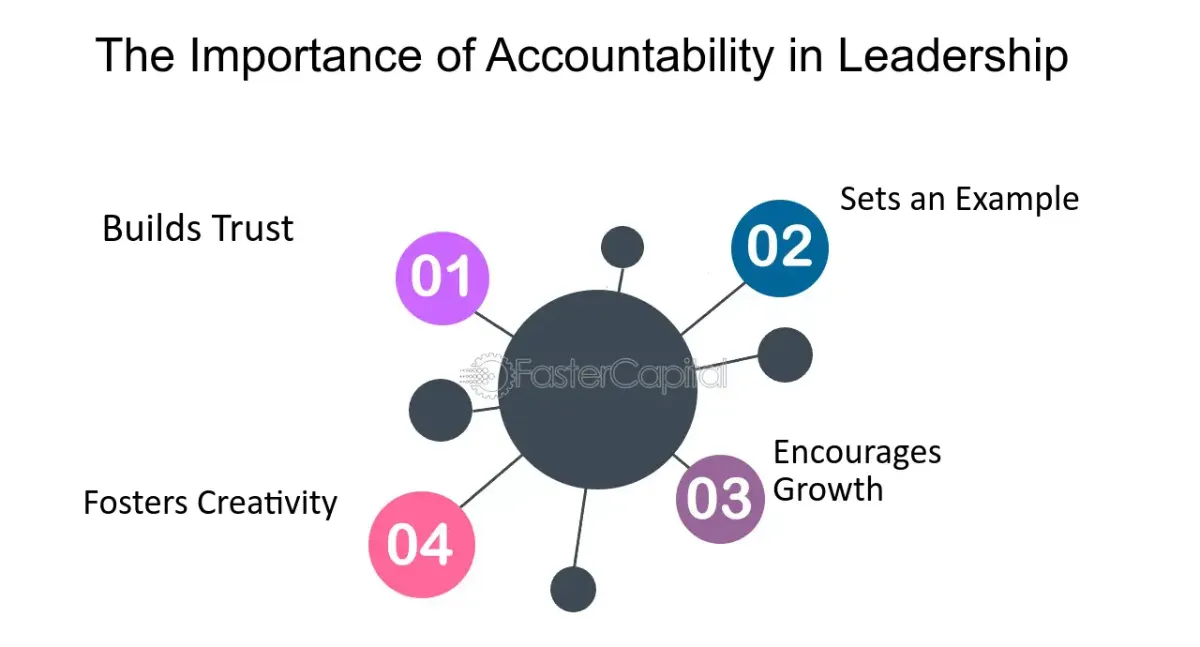
By embedding accountability into the fabric of leadership, businesses can cultivate a robust and resilient organizational structure that drives success.
Final Thoughts
Accountability is a fundamental aspect of any successful business. It enhances performance, builds trust, improves employee engagement, promotes ethical behavior, encourages innovation, and strengthens leadership. By creating a culture of accountability, businesses can achieve their goals more effectively and create a positive, productive work environment.
Incorporating accountability into your business strategy requires clear communication, consistent enforcement, and a commitment to ethical standards. By doing so, you can ensure that your business not only survives, but thrives in today’s competitive market.
Key Takeaways
| Reason | Key Points |
|---|---|
| 1. Boosts Performance and Productivity | - Clear roles and expectations. - Motivated employees. - Regular feedback. |
| 2. Builds Trust and Transparency | - Open communication. - Honest feedback. - Reliable team members. |
| 3. Improves Engagement and Satisfaction | - Sense of ownership. - Recognition and rewards. - Career growth. |
| 4. Promotes Ethics and Reduces Risk | - Uphold ethical standards. - Identify and reduce risks. - Ensure legal compliance. |
| 5. Encourages Innovation and Problem-Solving | - Encourage initiative. - Collaborative solutions. - Continuous improvement. |
| 6. Strengthens Leadership | - Leaders set examples. - Better decision-making. - Stronger teams. |





